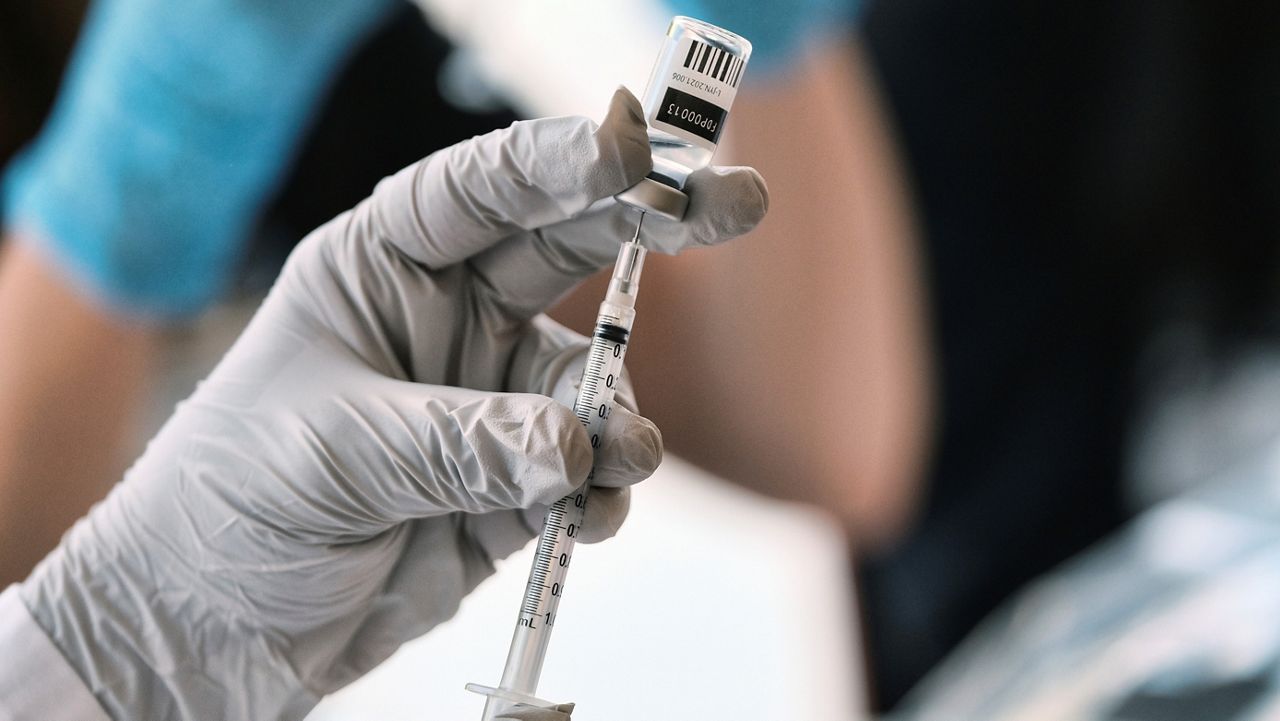ORANGE COUNTY, Calif. — With about 33 cases of monkeypox in Orange County, public health officials have a new threat to the community which the Centers for Disease Control and Prevention have deemed a “public health emergency.”
Those cases, identified by the Orange County Health Care Agency as confirmed or probable, have largely included men who have sex with other men. But officials and medical experts caution that they’re still learning how the illness is transmitted, and that the illness cannot be contained to one single group.
That leaves public officials, again, in the role of educators, relating medical details about an illness they’re still trying to figure out themselves. And while skin to skin contact — especially with a monkeypox sore or lesion — is an understood method of transmission, it’s not the only one.
“These are subtle concepts even for professionals,” said Andrew Noymer, a University of California, Irvine associate professor of population health and disease prevention.
Thus far, the illness is understood to be most transmissible through contact of soft skin, like during sex. Tougher skin, like on the hands, is less likely to allow the virus to permeate the skin.
Noymer also didn’t rule out the possibility that some infected people may spread the virus through respiratory means. If someone is infected, they could develop lesions in their throat and nose, which could then carry forth the virus to others through the air. The virus has also been found in several types of human excretions, like saliva, but it is unclear if the virus can be transmitted that way. Surfaces, like bed sheets, can also carry the virus, but may not be infectious. However, regular laundry and cleaning can eliminate any possible traces.
But all these various forms of transmission are still little understood, Noymer said, with the greatest amount of information applying to skin to skin transmission.
It’s unlikely to spread with the speed and ferocity of COVID-19, but Noymer said people need to be aware it’s out there.
“People know their own bodies, so if there’s something that seems unusual, they should get tested for monkeypox and not take no for an answer,” he said.
Testing for the illness and supplies of vaccines have not been distributed enough, Noymer said, something that the recent declaration of a public health emergency should help. Gov. Gavin Newsom also sounded off on the urgency of monkeypox earlier this week.
“California is working urgently across all levels of government to slow the spread of monkeypox, leveraging our robust testing, contact tracing and community partnerships strengthened during the pandemic to ensure that those most at risk are our focus for vaccines, treatment and outreach,” Newsom said in a press release Monday.
The state has distributed less than half of the 61,000 doses it has received.
The Orange County response to monkeypox will partially rely on how many vaccines it can get. It also abuts Los Angeles County, which has recorded about 430 cases.
“I think the response in Orange County has actually been pretty robust,” Noymer said.
Next, the county and other municipalities need to continue to shore up protections for health care workers.
“We need more testing, and we’re going to need [personal protective equipment],” he said.



